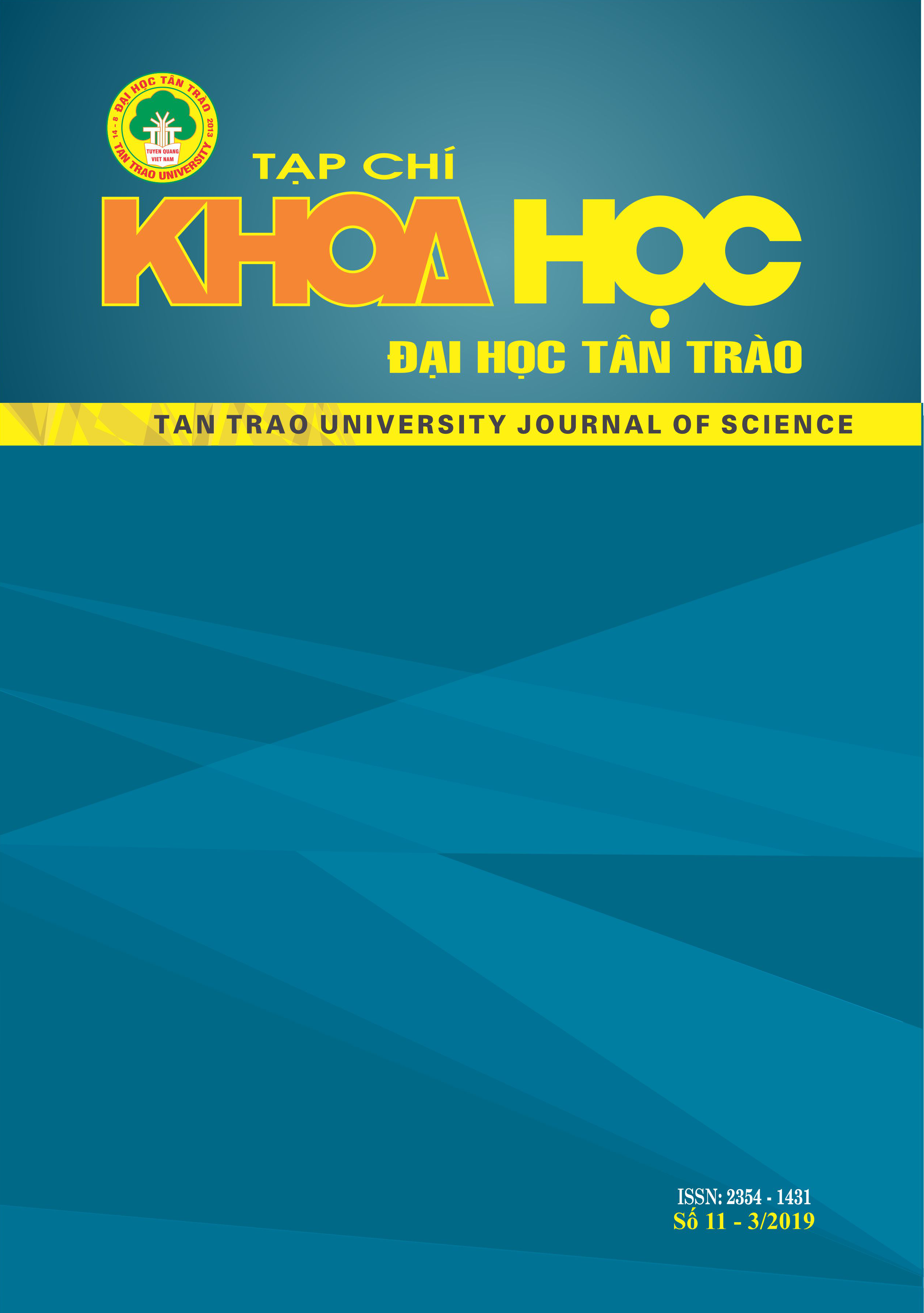The process of cognitive renewal of Tuyen Quang Provincial Party Committee on the implementation of great national unity from 1995 to 2015
DOI:
https://doi.org/10.51453/2354-1431/2019/218Keywords:
Cognitive renewal; great national unity.Abstract
During the renovation, the Party and the State issued many guidelines, policies and laws on forming a great national unity block. Like other localities in the country, Tuyen Quang always imbued with the great unity ideology that is the cause of the whole nation, the whole political system in which the party organization is the leading nucleus. The period 1995-2015 was a difficult historical stage, but the Provincial Party Committee applied and thoroughly grasped the policy, the policy of great national unity, the Party Committee of Tuyen Quang province found and gave the suitable policy of implementing the Combining to contribute to promoting comprehensive innovation and construction of Tuyen Quang province to develop quickly and sustainably.
Downloads
References
1. Đảng Cộng sản Việt Nam (2006), Văn kiện Đại hội đại biểu toàn quốc lần thứ X, Nxb Chính trị quốc gia, Hà Nội;
2. Ban Chấp hành Đảng bộ tỉnh Tuyên Quang (2009), Lịch sử Đảng bộ tỉnh Tuyên Quang (giai đoạn 1976-2005), Nxb Chính trị quốc gia, Hà Nội;
3. Ban Chấp hành Đảng bộ tỉnh Tuyên Quang (2000), Văn kiện Đảng bộ tỉnh Tuyên Quang giai đoạn 2000-2005;
4. Ban Chấp hành Đảng bộ tỉnh Tuyên Quang (2005), Văn kiện Đại hội đại biểu Đảng bộ tỉnh Tuyên Quang lần thứ XIV;
5. Ban Chấp hành Đảng bộ tỉnh Tuyên Quang (2010), Văn kiện Đại hội đại biểu Đảng bộ tỉnh Tuyên Quang lần thứ XV;
6. Ban Chấp hành Đảng bộ tỉnh Tuyên Quang (2015), Văn kiện Đại hội đại biểu Đảng bộ tỉnh Tuyên Quang lần thứ XVI.
Downloads
Published
How to Cite
Issue
Section
License

This work is licensed under a Creative Commons Attribution-ShareAlike 4.0 International License.
All articles published in SJTTU are licensed under a Creative Commons Attribution-ShareAlike 4.0 International (CC BY-SA) license. This means anyone is free to copy, transform, or redistribute articles for any lawful purpose in any medium, provided they give appropriate attribution to the original author(s) and SJTTU, link to the license, indicate if changes were made, and redistribute any derivative work under the same license.
Copyright on articles is retained by the respective author(s), without restrictions. A non-exclusive license is granted to SJTTU to publish the article and identify itself as its original publisher, along with the commercial right to include the article in a hardcopy issue for sale to libraries and individuals.
Although the conditions of the CC BY-SA license don't apply to authors (as the copyright holder of your article, you have no restrictions on your rights), by submitting to SJTTU, authors recognize the rights of readers, and must grant any third party the right to use their article to the extent provided by the license.


